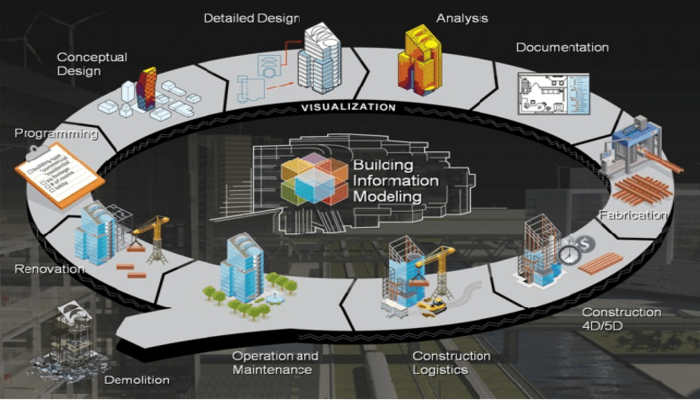
Starting a journey in the construction industry often begins with a key question: how do I become a construction manager? The answer lies in developing leadership, technical expertise, and quick decision-making skills. As infrastructure expands, demand for construction managers continues to rise across sectors residential, commercial, and civil.
In 2026, the average salary for U.S. construction managers stands at $95,168, with top professionals earning up to $138,000/year. Entry-level roles start around $71,000, while cities like Soledad and Corte Madera offer over $140,000/year.
This guide explores job responsibilities, growth opportunities, and the path to becoming a certified construction manager, equipping you with everything needed to build a rewarding career in construction leadership.
Who is a Construction Manager?

A Construction Manager is responsible for leading construction projects from conception to completion. They are the bridge between planning and execution, ensuring every detail is met according to client specifications, within budget, and on schedule. They act as both the strategist and the tactician, working closely with architects, engineers, contractors, and regulatory authorities.
Key Responsibilities & Duties
- Plan and oversee entire construction projects from start to finish
- Create project timelines and ensure adherence to deadlines
- Estimate project costs and manage budgets effectively
- Hire, supervise, and coordinate subcontractors and workers
- Ensure all work complies with legal regulations and safety standards
- Conduct regular site inspections and risk assessments
- Communicate updates and challenges with stakeholders
- Manage procurement and ensure the timely availability of materials
- Adapt to delays or changes in scope with contingency planning
- Understand job responsibilities of construction manager and align the workforce accordingly
Also Read - What is BIM in Construction Management? A Complete Guide
How to Become a Certified Construction Manager? Education & Key Skills
If you're wondering how to become a project manager construction professional, the journey begins with a strong educational foundation, skill-building, and hands-on experience.
Qualification

- Bachelor’s degree in Construction Management, Civil Engineering, Architecture, or related fields (answers: what degree do you need to be a construction manager?)
- Some roles accept associate degrees with extensive work experience
- Professional certifications such as PMP (Project Management Professional), CCM (Certified Construction Manager), or LEED AP (Leadership in Energy and Environmental Design Accredited Professional)
- Optional: Master’s in Construction Management or MBA for executive roles
Technical Skills

Key Technical Skills of a Construction manager include
- Proficiency in Building Information Modeling (BIM) tools: Revit, AutoCAD, Navisworks
- Scheduling tools like MS Project, Primavera P6, or Procore
- Cost estimation tools: Bluebeam, CostX, or Excel-based models
- Understanding of building codes, contracts, and quality assurance practices
- Familiarity with project delivery methods: design-build, IPD, or traditional design-bid-build
- Knowledge of green construction and sustainable practices
Soft Skills

Key Soft Skills of a Construction manager include
- Strong leadership to manage cross-functional teams
- Clear communication and negotiation skills
- Problem-solving and quick decision-making under pressure
- Time management and the ability to multitask efficiently
- Conflict resolution and people management
- Strategic thinking and adaptability to change
These are the essential skills needed to be a construction manager and form the core requirements for construction project manager roles in any region.
Related Read - What does a Construction Manager do?
Construction Manager Salary Around The World
|
Region |
Average Annual Salary |
|
India |
|
|
USA |
|
|
Saudi Arabia |
Whether you're looking up construction managers salary, average salary of a project manager construction, or even assistant construction manager salary—it's clear that this role is financially rewarding. For those starting out, entry level construction project manager salary typically falls between $71,000 to $1,00,000 annually in the U.S., and increases significantly with experience. At the top end, sr project manager construction salary or construction site manager salary can exceed $54,000 - $92,000 per year.
Career Progress (Path) for Construction Manager
The construction management career has dynamic growth and allows one to specialize or join the management and executive responsibilities.
-
Graduate Engineer / Site Engineer
Begin your career by working on the ground and developing technical and on-site skills. They are the best entry level construction management jobs to see how things are working in the field and how to document projects.
-
Assistant Project Manager
Assists senior managers in scheduling, coordination with suppliers, site documentation, and real-time progress tracking to provide a smooth workflow and exchange of information between different teams.
-
Project Manager / Construction Manager
Takes full ownership of construction projects, it involves budgeting, planning, scheduling, managing a group within the project, and finishing off a construction project to satisfy the safety, quality, and the clients' requirements throughout the entire operation.
-
Senior Project Manager / Construction Director
Monitors various mega projects or guides an entire construction unit, providing strategic coordination, optimizing resources, and satisfying stakeholders among various groups and regions.
-
Regional Head / General Manager (Construction)
Regional leadership is achieved by defining performance targets, budgeting, solving higher-level problems, and coordinating regional project implementation practices with overall organizational and financial plans.
-
Vice President / Director of Projects
Provides national or global direction in the project portfolio, establishes organizational policies, secures funding, executive relationships, and compatibility between corporate vision and project implementation.
-
Entrepreneur / Independent Consultant
Upon gaining experience, the professionals usually start their construction firms or advisory services with experience in planning, audit of projects, dispute resolution, or sustainable construction solutions.
Job Opportunities in the Career:
-
Cost Estimator / Quantity Surveyor
Emphasizes project cost planning, analysis, budgeting, and financial tracking. Ensures the correct estimation of material, labor, and time costs to be profitable and not overcharge the budget.
-
BIM Manager / Virtual Design & Construction Lead
BIM Manager Controls the Building Information Modeling (BIM) tools and processes to digitally assist in coordinating design, clash, and project visualization through effective and precise construction planning.
-
Safety & Compliance Officer
Makes sure construction sites comply with health, safety, and environmental laws. Audit, risk evaluation, and training are provided to prevent accidents and stay within the laws.
-
Contract Manager / Legal Advisor
Expert in drawing up, exploring, and filling in construction contracts. It puts an end to disputes, makes sure the organization adheres to regulations, and covers the legal and financial interests of the organization.
-
Sustainability Consultant (LEED/IGBC certified)
Offers consultations on green building practices, energy efficiency, and certification procedures. Assists construction teams using eco-friendly systems and materials to achieve sustainability goals and standards.
No matter where you begin, the construction project manager career path is filled with rewarding opportunities for growth and leadership.
In Conclusion
Becoming a Construction Manager is not just about hard hats and blueprints it's about leadership, strategy, and precision execution. For those curious about how long does it take to become a construction manager, it typically requires a 4-year degree plus 3-5 years of relevant experience to move into independent management roles.
With infrastructure and development projects scaling globally, construction managers remain in high demand. With the right mix of formal education, industry certifications, and the core skills of construction manager professionals, you can create a fulfilling, high-impact career. If you’re ready to start, first understand the requirements to be a construction manager and evaluate where you stand today.
Novatr recommends its BIM Professional Course for civil engineers to have a competitive advantage in the industry. It’s a comprehensive course that introduces Revit and 8+ industry-standard tools that use workflows like real-life projects. Check out our resource page, where you can find more professional tips, resources, and practices about the construction profession.
Was this content helpful to you



.jpg)



.jpg)


